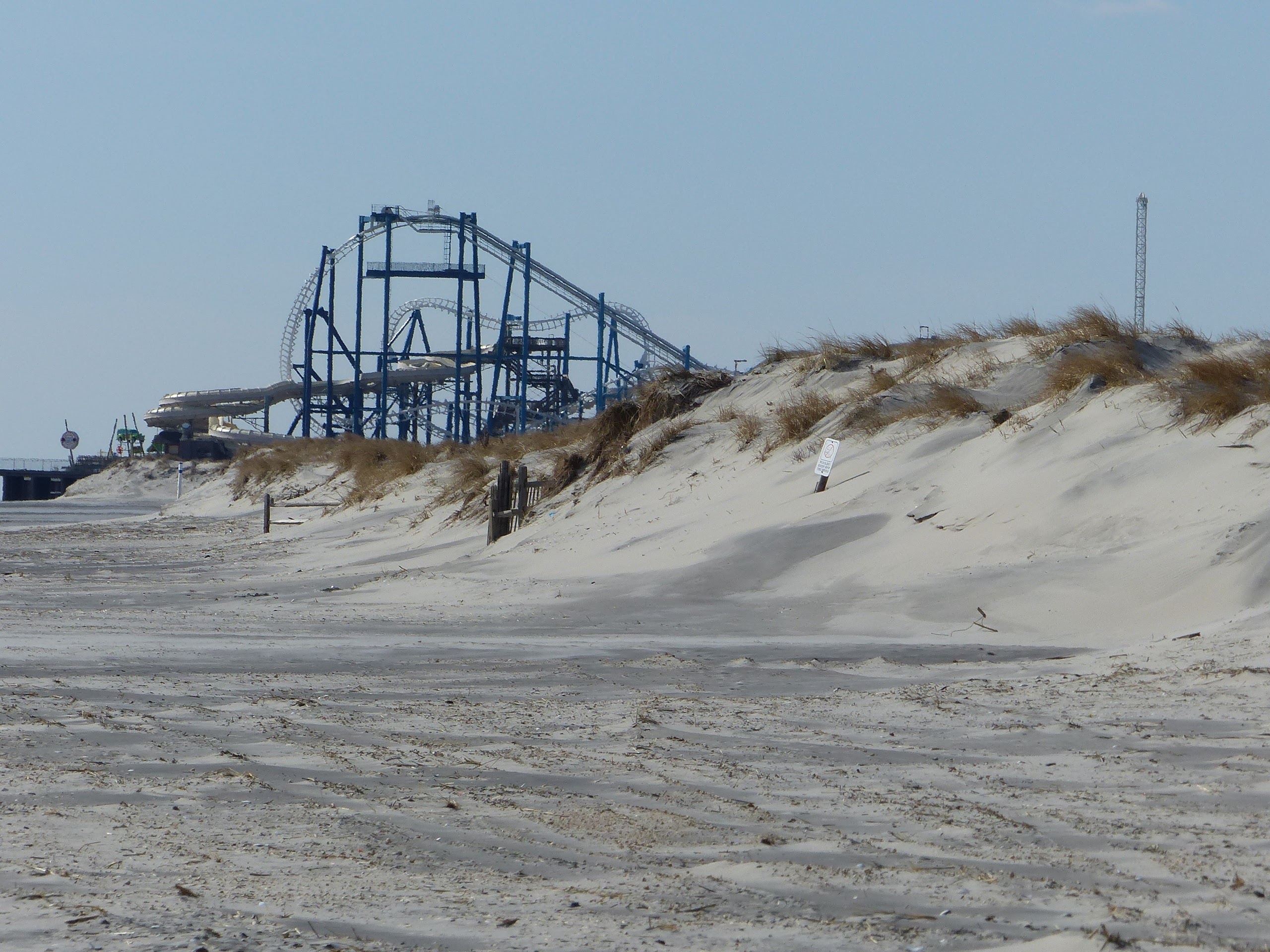TRENTON – First Lady Tammy Murphy and Commissioner of Environmental Protection Shawn M. LaTourette today kicked off Climate Week by announcing the release of the Summary of Climate Change in New Jersey, an important resource developed by the New Jersey Department of Environmental Protection to help teachers throughout the state understand and incorporate climate science into their lesson plans. Climate Week runs from Sept. 17 through Sept. 24, providing an opportunity for the public to learn about the impacts of climate change and actions that can be taken to become more resilient.
With the New Jersey Board of Education’s adoption of the 2020 New Jersey Student Learning Standards, New Jersey became the first state in the nation to include climate change across content areas from kindergarten through high school.
These standards are designed to prepare students to understand how and why climate change happens, the impact it has on our local and global communities, and to act in informed and sustainable ways. Educators may download the summary at the DEP’s State Education Environmental Directory (SEEDS) website.
“As climate change increasingly poses a threat to our planet, it is imperative that we equip our students with the skills and education to lead in the jobs of the future and tackle the challenges ahead,” said First Lady Tammy Murphy.
“It is critical that we provide our premiere-in-the-nation teachers with the best possible resources. The Summary of Climate Change in New Jersey will help our teachers develop comprehensible classroom-specific lessons and I look forward to seeing its implementation as we continue on the path to a greener future.”
“Climate education is imperative as the planet experiences the rapidly worsening effects of climate change. New Jersey is on the front lines, facing some of the worst impacts of global warming,” said Commissioner LaTourette.
“The young people sitting in classrooms today will be the leaders in the continuing battle against the climate crisis. Together with educators across the state, we must prepare them to fully understand the science of climate change, the way it is reshaping our lives, and the steps they can take to prepare for and mitigate its impacts.”
“I am thrilled to join First Lady Tammy Murphy and NJDEP Commissioner LaTourette in celebrating the launch of this invaluable resource aimed at empowering our teachers to seamlessly integrate climate change into their lesson plans,” said Dr. Angelica Allen-McMillan, Acting Commissioner of Education.
“Education is the key to a sustainable future, and by equipping our educators with the tools and knowledge they need, we are nurturing a generation of young minds who will become passionate stewards of our planet, working together to combat the challenges of climate change.”
“Public health is closely connected to our physical, biological, and ecological systems, and disruptions to these systems resulting from climate change can have profound impacts on people and communities. These impacts can be especially detrimental to vulnerable communities, compounding the existing burden of disease and exacerbating barriers to accessing health care services,” said NJ Acting Health Commissioner Dr. Kaitlan Baston. “Climate education will provide valuable and actionable lessons for New Jersey students to prepare for, adapt to, and mitigate the health impacts of climate change.”
In easy-to-understand language, the document summarizes two groundbreaking climate change reports prepared by the DEP – the 2020 NJ Scientific Report on Climate Change and the 2022 Health Addendum: Climate Change Impacts on Health and Communities, providing essential background teachers need to teach climate change and fulfill the climate change standards. This document may be especially helpful for non-science teachers who need to meet the standards but have no background in climate change.
Content areas where teachers are required to teach climate change are:
- Visual and Performing Arts
- Comprehensive Health and Physical Education
- Science
- Social Studies
- World Languages
- Computer Science & Design Thinking
- Career Readiness, Life Literacies and Key SkillsTeachers can print out the PDF and use it as reference material when planning lessons and teaching. The QR code on the last page of the PDF links to more resources. Since the resources are a website and not static in the document, DEP can add new lessons and climate change documents as they become available.
The linked lessons are from New Jersey Climate Change Education Hub and were developed by SubjectToClimate. Supporting organizations include National Wildlife Federation, New Jersey Audubon, New Jersey School Boards Association, Sustainable Jersey and The College of New Jersey. The lessons are correlated to the NJ climate change learning standards and are searchable by age range and subject area.
SubjectToClimate has two additional programs to support climate change learning in NJ. The Climate Education Mentor program matches teachers with mentors to support the implementation of the NJ Climate Education Standards into their lesson plans and classroom, and the Teacher Task Force, which creates NJ-based lesson plans for the New Jersey Climate Change Education Hub to inspire teachers to teach about climate change.
To stay updated on climate change education announcements, teachers can join DEP’s environmental education email list.
The DEP’s newly updated climate change website includes a more user-friendly homepage and a collection of interactive story maps titled Climate Change in New Jersey: Impacts and Effects, which provide up-to-date climate change research, build upon the findings of the 2020 NJ Scientific Report on Climate Change, and use a direct, easy-to-understand format that includes maps, photos, graphs, animations and more.








